- Home
- neetha Napew
Forbidden Land Page 20
Forbidden Land Read online
Page 20
They had come out of the defile. The forest hills lay behind them, and the wonderful valley lay directly ahead. Now they could hear the herd again. Now they could smell it. Now, for the first time, they could see it.
Caribou! Long, broken rivers of hide and hoof and antler! So many caribou that the herd plodded under a great, vaporous cloud of steam, which condensed from the combined breath of thousands upon thousands of animals. Never before or again in the history of the world would so many animals of one kind walk together beneath the open, unspoiled sky. Out of the face of the rising sun, from unknown country far to the east, and through the high, wide, still ice-ridden passes the caribou approached the western ranges as they crossed the distant southeastern edge of the valley. Torka and his little band stood in stunned silence. Not even in their most hopeful moments had they ever dared to imagine that the forces of Creation would allow the great mammoth to lead them to such a herd.
“As my magic man has promised, this is a wonderful valley!” Mahnie exclaimed as she stood close to Karana, looking at him with all her love shining in her eyes, and failing to note the petulant envy on the face of Summer Moon, who had been like a wayward little shadow to Karana these days.
He took no note of the child or Mahnie. He moved to stand slightly ahead of them and the others of the band and stared out across a world of light and beauty. Yet deep within the core of his being, the spirit wind was rising .. . whispering .. .
Go from this place. There is danger for you here. Go back into the track of the setting sun before it is too late . before the prophecy ofNavahk is fulfilled for you all!
Karana stiffened against the warning. This was not what he wanted to hear! Not now, when the wonderful valley lay ahead, at last! Here was the real place—not a lie, not a conjuring of hopeful dreams, but real in every detail that he had described to the band. His words had given his people the determination and courage to find their way to this place of his promising.
A great hot lump lodged in his throat. The power of Seeing was his! Perhaps he had never truly lost it? Perhaps his lack of faith in his own shamanistic powers, his own guilt and indecisiveness, had dulled his Sight and blinded him? Yes! Surely this must be so.
Go back! warned the spirit wind. Go back now, before it is too late!
“Life Giver, the great mammoth spirit, has led my people to this good land. Never has our totem led us wrongly before!” he proclaimed loudly and defensively as he stood immobile and crossed his arms over his chest.
“And what does our magic man see for his people in this wonderful valley?” asked Torka, coming to stand beside him.
Truth snared his tongue. “Many things.”
“And some of them are troubling to you?”
Karana was painfully aware of Torka’s scrutiny. Torka had always been able to see into his heart—except on a day, long ago now, when the hunter had been too heartbroken to recognize the lies and the deception of one whom he called Son.
“Something is troubling you,” Torka observed. “Something has been troubling you since before we left Cheanah’s people in the Place of Endless Meat.”
Their eyes met and held, then Karana looked away, lest Torka glimpse his spirit and see everything that Karana could never allow him to see:
Deceiver. Manipulator. Liar. But Karana would not lie to him now, not as they stood together on the brink of a new world and a new life.
“Perhaps this valley is not all that it seems,” he replied obliquely.
“Nothing in this world is ever all that it seems,” responded Torka. “But it has been said by the ancients that a magic man sees the world more clearly than do others. I thought that you might tell me more than I already know.”
Karana shook his head and choked back his reply: No. We know much less, for we must see through mists thrown before our eyes by the spirit wind, which always tries to trick us, to confuse us, and to take back the power given us.
“It is no wonder that we heard the passing of these animals even though we were so far away!” lana whispered in awe.
“So many animals! So much meat!” Wallah sighed rapturously.
So many animals! Her words echoed in Torka’s head. Karana was being evasive, as usual, but the moment was nevertheless one of supreme gladness. At last those who had followed him were to be rewarded, and he could relax momentarily and anticipate with joy the exhilaration to be had in hunting and feasting.
As always happened when he was brought short with amazement by the sight of the great herds returning out of the face of the rising sun, Torka found himself intrigued by questions that had haunted him since boyhood: How can there be so many animals? Where do they come from? Where do they go to?
“Torka? We will prepare to hunt now, yes?”
Grek’s query sent the revery away. Torka nodded in reply. This was not the time for questions. This was the time to hunt. At last.
They unloaded their pack frames, raised temporary leantos to shelter them against any unexpected change in the weather, and quickly prepared for the kill and the butchering to follow.
“So many caribou ... so few hunters,” lamented Simu, dressed for the hunt and looking off toward the herd. “It is a sad thing that this band has fewer spearmen than this man has fingers on one hand. With more men, think of the meat with which we would fill the camp!”
“Then count on both hands, my brother!” Torka told him, then called out the names of the women and girls, summoning them forward.
“Females do not hunt with their men!” Simu protested, shocked.
Torka took measure of the younger man. “Knowing that it would offend the ways of your ancestors, I am not suggesting that our females pick up spears and hunt game. But I do have an idea that will involve them and should increase our take of meat.”
“We have our spear hurlers,” Grek pointed out. He was obviously uncomfortable with the concept of bringing females into the hunt. “With spear hurlers, four men can do what eight would be hard put to accomplish in any other band!” He hefted the hunting tool taat Torka had invented long ago in the far land.
An elongated shaft of fire-hardened bone approximately the length of a man’s forearm, the spear hurler seemed to be little more than a barb-ended bone with a sinew wrapped handgrip at one end. But with the grip held tightly, the butt end of a spear braced against the barb, and the pointed end of the spear resting back over a hunter’s shoulder, a spear hurler could double the speed, distance, and power of a hunter’s thrust.
Torka watched Simu test the weight of his own spear hurler; the device was relatively new to the young hunter, and Torka knew that Simu was not as competent with it as he would like to be.
“This is not as good as having another strong man to hunt beside me,” Simu muttered.
Grek, who found humor in virtually any situation, said, “But it is better and more trustworthy than any of the so-called hunters who follow that perpetually bone-loined, camp-stealing, say-yes-to-mother man Cheanah!”
Simu grinned. “Would it not be a good thing to see the look on that one’s face if he saw this fine, sweet valley and the number of animals that wait to die upon the spears of this band’s hunters!”
Grek guffawed. “It would be good! So good that it would almost be worth going back to see it!”
Torka was amused and pleased by the men’s good natured exchange and saw all the women blush and titter. Then the headman took the band into his confidence: “We will use our spear hurlers. Only males will use spears. But for the women, my idea is this....”
In stalking cloaks of caribou skins brought from the far country, the hunters went out from among their women and children. Quietly they walked, with the antlered heads of long-dead animals balanced atop their own, and with their spears and spear hurlers at ready. Not a word or whisper was spoken. When the herd was close, the men stopped to gather the feces of their prey, rubbing it into their skin so the animals would detect no scent of the human intruders.
Now the hunters sta
lked the caribou in the manner of wolves, in silence, with cunning. And not until the caribou heard the song of the spears did the herd know that Death walked among them.
Now the hunters were wolves. With the great dog Aar working as a part of their pack, they deliberately set terror to the herd, howling, yipping, and running among the panicked animals like fire in dry grass.
The killing site had been chosen with care. A broad, open stretch of steppe, it lay directly between the herd and the western ranges and was bisected by a wide, shallow, stony-bedded stream. The area was far from marshes and lake beds into which the terrified caribou might plunge and disappear underwater before the hunters could retrieve the carcasses and precious spears.
Here, in the grasses bordering the stream, the women and girls hid with old Grek to protect them in case anything went wrong. Each was covered with the largest skin she could carry. When the herd came close, the females held up the skins and rose in unison, to screech and howl like wolves and wanawuts. The already panicked caribou broke and scattered, then old Grek and the females took after them, driving the caribou back toward the spears of the waiting hunters.
So much meat was taken, old Wallah was later inspired to predict that in generations to come, the children of the People would sing of the magic of the first hunt in the wonderful valley. Torka, however, insisted that there had been no magic.
“It was merely a good idea that worked well,” he told her. “If you want magic, look to Karana.”
But that night while lana and the girls slept in a separate lean-to, when Torka and Lonit lay together beneath their sleeping skins, Lonit told her man that he had been wrong.
“What you did this day was magic,” she said. “A greater magic than this woman has ever seen Karana work. This day, at Torka’s command, the men and women of more than one band worked together as one people, men and women for the good of all. Once before, in the storm, you commanded the others to work together, despite their fear, to raise the hut. Surely this is a great and powerful magic.”
Beneath their bed furs Lonit put little Umak to sleep close at her back. She turned and stirred softly against her man. Her bare skin was warm, then hot against his as she moved to lie atop him, balancing herself on her palms, slurring her breasts against him, opening herself to him as she looked down at him, then bent to kiss his mouth, to breathe her love into his nostrils. He caught fire from her intent, gasped, and pulled her down. Once more man and woman were one within the camp of Torka.
“Magic ...” Lonit exhaled, trembling and arching to prolong their union. When the night caught fire and burned with the power of their joining, Torka knew that she had been right after all: When Lonit was in his arms, there would always be magic.
The days of endless light poured across life’s surface as the people of Torka hunted and gathered beneath a never setting sun. Hibernating creatures emerged from their dens and burrows; the coats of ptarmigan, owls, and rabbits changed from winter white to summer brown, and geese, swans, ducks, and other migratory birds came gliding from the skies to the south to mate and raise their young upon the ice-free lakes and ponds that jeweled the wonderful valley.
In the camp of Torka and his people, the cache pits were full, and the drying frames sagged from the weight of curing meat. Weary hunters had new tales of daring, bravery, and high adventure when it was time to rest from the kill and sit together with their women and children. And while the men hunted and explored the valley, the women and girls sang and laughed as they worked to butcher the meat, flesh the hides, and work the skins of caribou and horse and of moose and elk. Although Wallah confided that Grek still longed for steaks cut from the fatty hump of a bison, she had no doubt that sooner or later he was bound to have his longing sated, for it seemed that in the wonderful valley every good thing that men and women wished for came to pass.
“Magic Man?” Demmi’s voice was soft on the warm wind.
Karana was startled by the appearance of the child, for he was well out from camp, seated on a lichen-stuffed pillow of bison hide. Aar sat at his side as he worked to bind a new spearhead to his favorite bone shaft. His brow furrowed. What was she doing here? It was pretty, adoring little Summer Moon who dogged his steps.
“Why has the second daughter of Torka come away from camp alone?” His question was a deliberate scolding.
Demmi hung her head. Only barely able to hold her own against the enthusiastic nuzzling of the dog, she wrapped her arms around Aar’s neck lest he knock her down.
Karana called the dog. Aar obeyed and came close, seating himself with his tail and half a bony buttock on the magic man’s right thigh.
Demmi followed, nestling herself on his left thigh, like a little bird wiggling into the comfort and security of its nest. “Where is Longspur, Magic Man? You said we would find him in our valley, but Demmi has looked. Demmi cannot find him.”
Karana felt a quick sinking feeling as he remembered the tiny bird he had inadvertently crushed in his fist during their journey from the Place of Endless Meat.
“There are long spurs all around us in this good land,” he told the child.
The young man was surprised by his reaction to her closeness; there was something calming in the minuscule weight and warmth of the tiny, serious little girl. He saw the look of trust on the child’s face and knew that there was only one way to live up to it. He took a last turn on the sinew spear joining and secured it. “Come.” With his spear held upright in one hand, he scooped her up in one lean, strong arm and rose. “Together we will find Long spur.”
Eagerly she took his hand as he set her upon her feet and told the dog to stay. Disappointed, Aar whined and lay down, resting his head on his paws as the tiny girl walked at the magic man’s side until, to her obvious delight, Karana bent and lifted her again.
“We will walk faster as one, Sister,” he said, and to his amazement, the sober-faced little girl leaned close and kissed him on the cheek.
Sister! Karana smiled for the first time in many days. Yes/
It was good to think of her in that way. Demmi was his sister—not by blood but by a deeper, more heartfelt bonding than a mere happenstance of birth could ever make. The thing—the child of Navahk and the beast—was far away, in another world, in another life, and no longer a part of him unless he chose to journey back to seek it out. And that he would never do.
A sudden and wondrous euphoria nearly overcame him as, for the first time, he felt a sense of control over his true father. Navahk could not be reborn through a daughter, so the half-human cub offered no threat. The only piece left of that evil man was that small portion that lived on in Karana—never to be reproduced if he refused to couple with Mahnie—and the half-human cub that lay impotent, far away, in another world, in the arms of a beast.
And so now, with a lighter step and a joyful spirit, he carried his tiny sister Demmi to a broad space of tundra, where they both lay flat and peered through the grasses. The child saw only a relatively barren stretch of lichens and mosses until Karana whispered: “Look, my little sister. Listen and be very still.”
Demmi chewed her lower lip and held her breath, straining to hear. Gradually, as she lay beside the magic man, she smiled. Her ears began to perceive the little sounds of insects, the larger sounds of the world above and beyond the grasses, and the quick, musical teewteew and high, whistling tick-tick-tick of long spurs As the moments passed, Karana became aware of the child’s controlled breathing. It was so soft and measured, he could barely feel her side moving against his. He could not hear her exhalations at all, for she blocked them within her tiny palm lest her breath betray her presence to the world of grasses. He raised an eyebrow. This one is female, but she has the instincts of a hunter.
Slowly, so slowly that even the magic man was not distracted by the movement until Demmi’s finger was practically below his nose, the little girl pointed off. The subtlest tremor of pleasure shook her form as she saw what he had brought her to see: hundreds of drab little birds
sitting on drab little nests.
He nodded. “Come now,” he whispered, and together they rose and went stalking amid an upward spray of panicked, chittering long spurs Karana knelt before an indentation in the tundra no larger than the palm of his hand. “Look.”
The child knelt and gazed upon a minute, feather-lined nest in which lay half a dozen pale, lichen-green eggs. Her eyes went wide with amazement and joy. “For Demmi?”
“Just for Demmi. Your mother has told me that eggs are one of Demmi’s favorite things.”
Her round face puckered with concern as she turned back to stare at the magic man out of eyes that were so much like Torka’s: long and angled upward beneath the brow. “Demmi will not eat Longspur’s babies!”
“There are thousands of eggs here for the taking. Long spur will not mind.”
“He has told you?”
“He .. . has told me.”
“Has he asked his woman longspur if Demmi could eat her children?”
“These are eggs, Little One, not children.”
And so they sat and shared the eggs from several nests. Sweet they were and slippery on the tongue, and as the magic man watched the little girl happily suck the shells, he was suffused with a warmth and contentment that he had not felt in all too many moons.
There was magic in the world, he thought. The tender, trusting magic of a little sister for an older brother. He had decided never to have a child of his own, but he had Demmi’s love, and this was more than enough for him.
Suddenly, Demmi grimaced and spat and spewed a tiny beak and half-formed clawed foot from her mouth. “Baby!” she shrieked, snapping to her feet, shaking violently, waving her pudgy little hands in horror at having eaten one of Longspur’s children.
Karana was at a loss to ease the child. Why was she so upset? In her brief lifetime she must have consumed dozens of such nearly formed eggs. “Truly, it is all right!”
he assured her. “Longspur told me that it would be all right. Would Magic Man not speak the truth to his sister?”

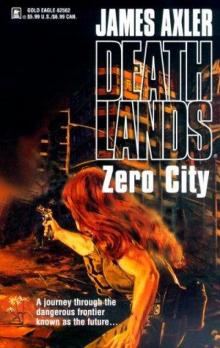 Zero City
Zero City Freedom Omnibus
Freedom Omnibus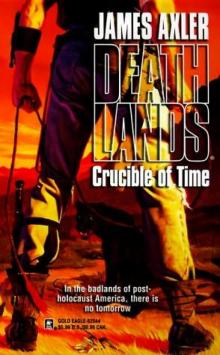 ACrucible of Time
ACrucible of Time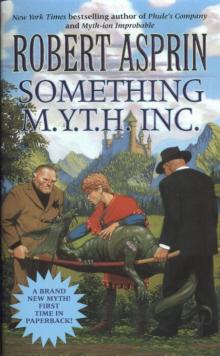 Something MYTH Inc
Something MYTH Inc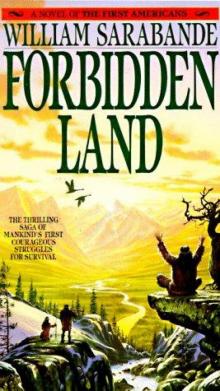 Forbidden Land
Forbidden Land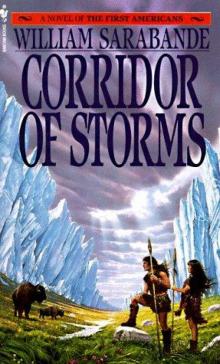 Corridor of Storms
Corridor of Storms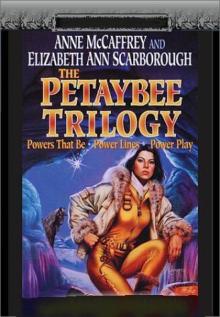 The Peytabee Omnibus
The Peytabee Omnibus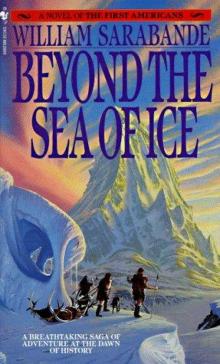 Beyond the Sea of Ice
Beyond the Sea of Ice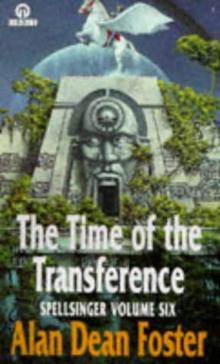 The Time Of The Transferance
The Time Of The Transferance EarthBlood
EarthBlood The Lexal Affair
The Lexal Affair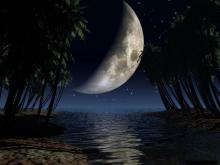 The Web
The Web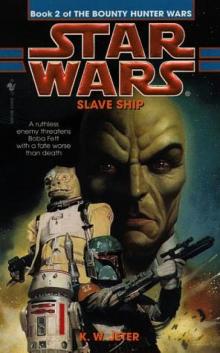 Slave Ship
Slave Ship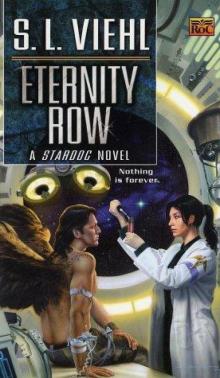 Eternity Row
Eternity Row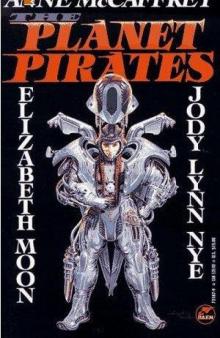 Planet Pirates Omnibus
Planet Pirates Omnibus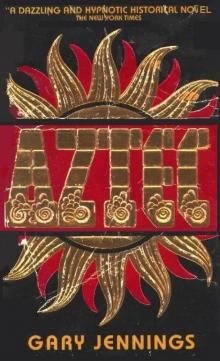 Aztec
Aztec The Awakening
The Awakening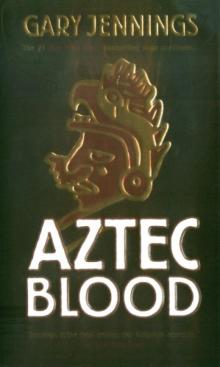 Aztec Blood
Aztec Blood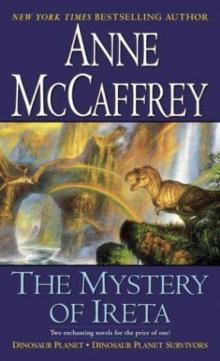 The Mystery of Ireta Omnibus
The Mystery of Ireta Omnibus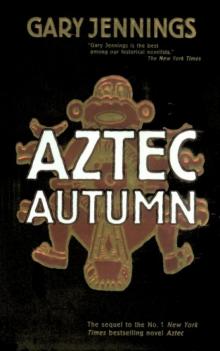 Aztec Autumn
Aztec Autumn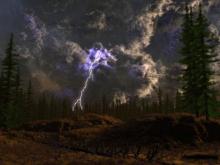 The Savage Horde
The Savage Horde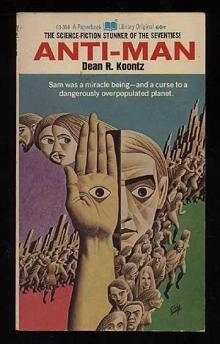 Anti - Man
Anti - Man Deep Trek
Deep Trek Starfall
Starfall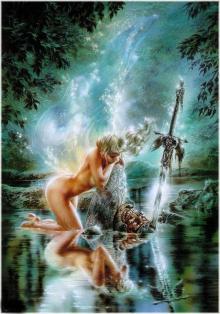 The Paths Of The Perambulator
The Paths Of The Perambulator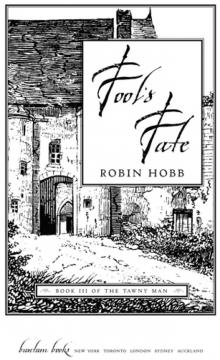 Fool's Fate
Fool's Fate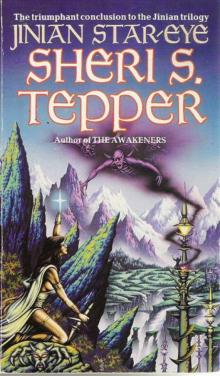 Jinian Stareye
Jinian Stareye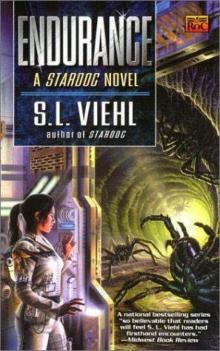 Endurance
Endurance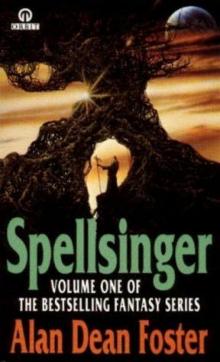 Spellsinger
Spellsinger Hybrids
Hybrids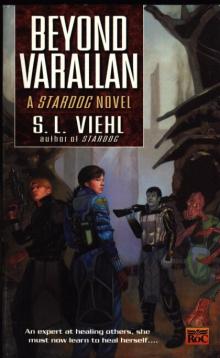 Beyond Varallan
Beyond Varallan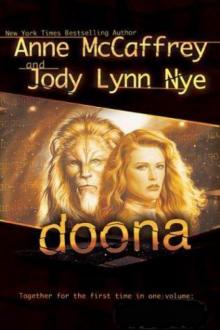 Doona Trilogy Omnibus
Doona Trilogy Omnibus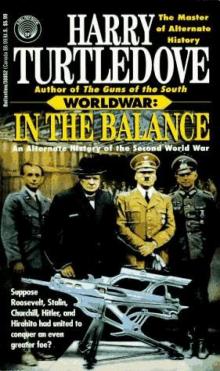 In th Balance
In th Balance Planerbound
Planerbound The Nightmare begins
The Nightmare begins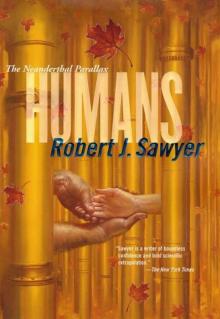 Humans
Humans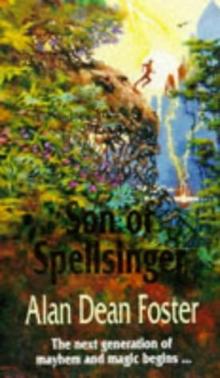 Son Of Spellsinger
Son Of Spellsinger